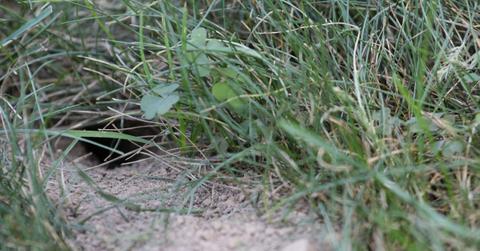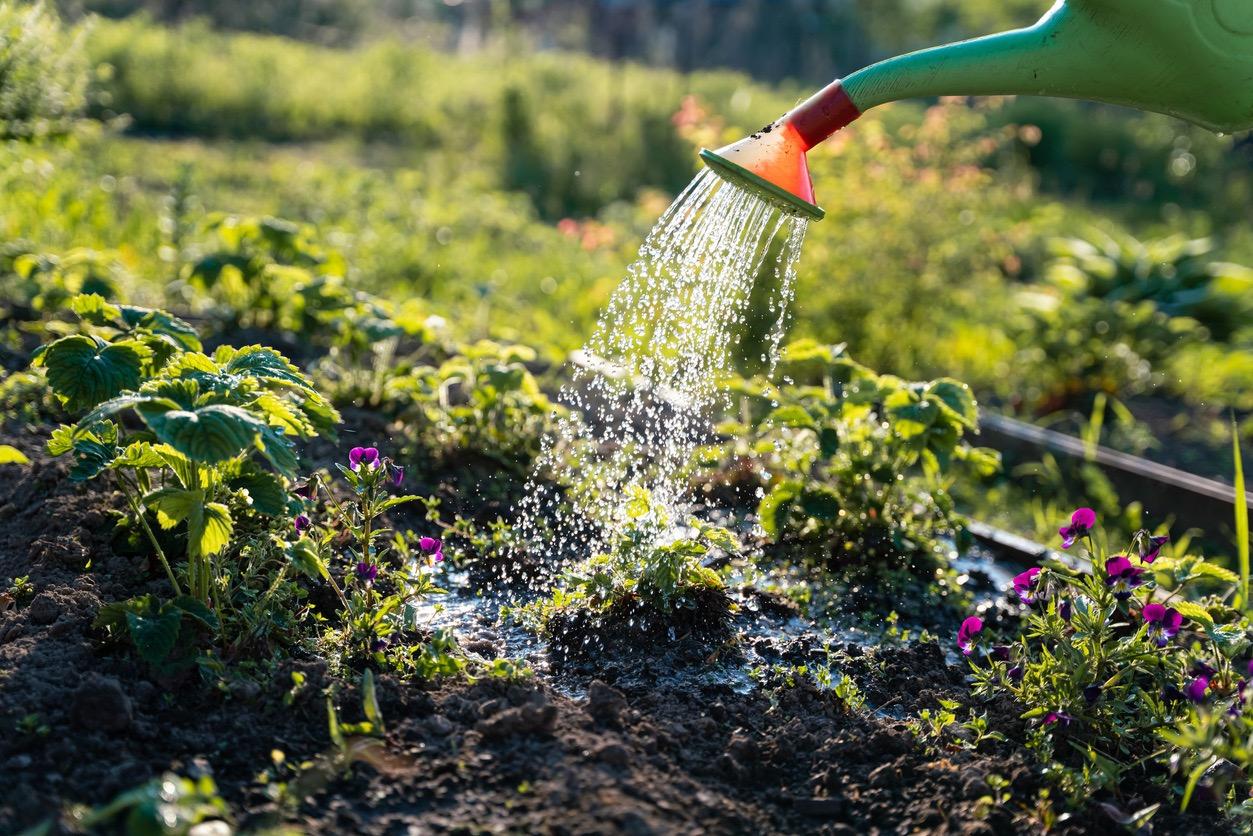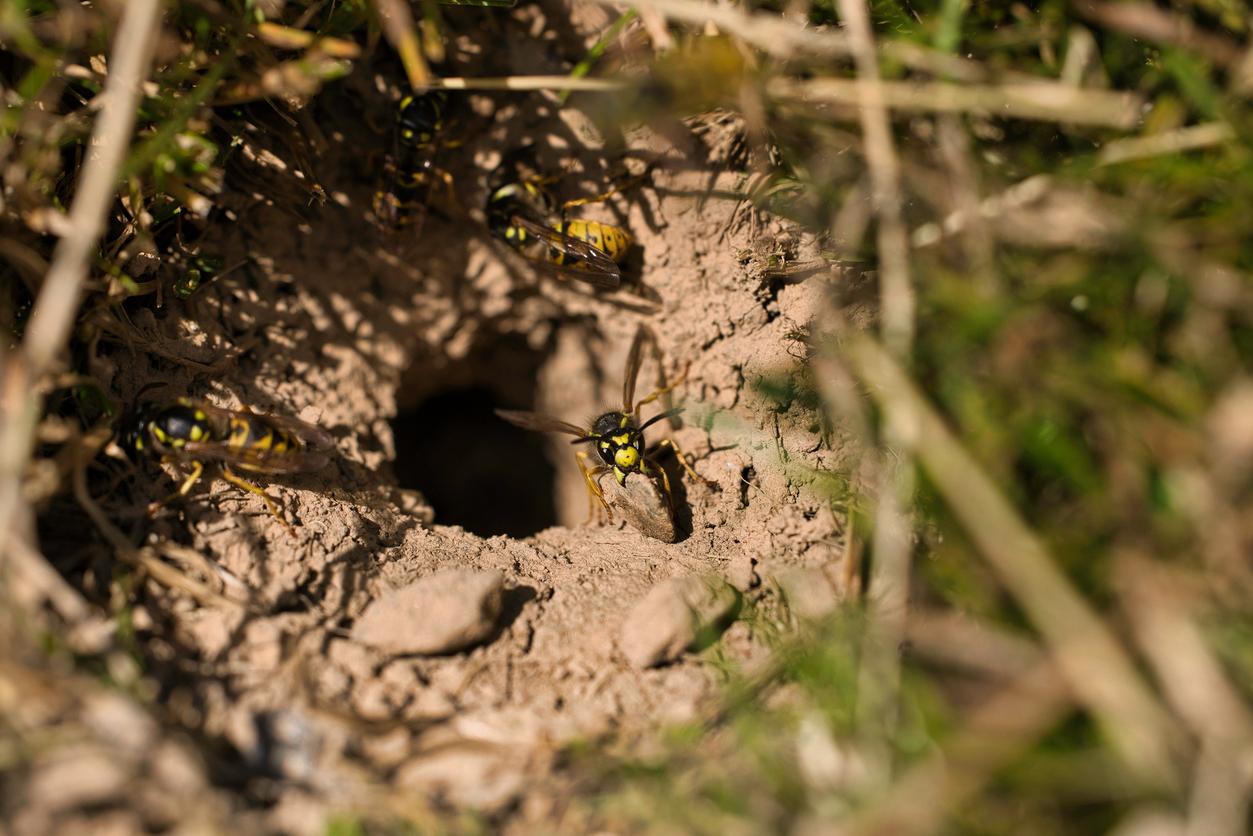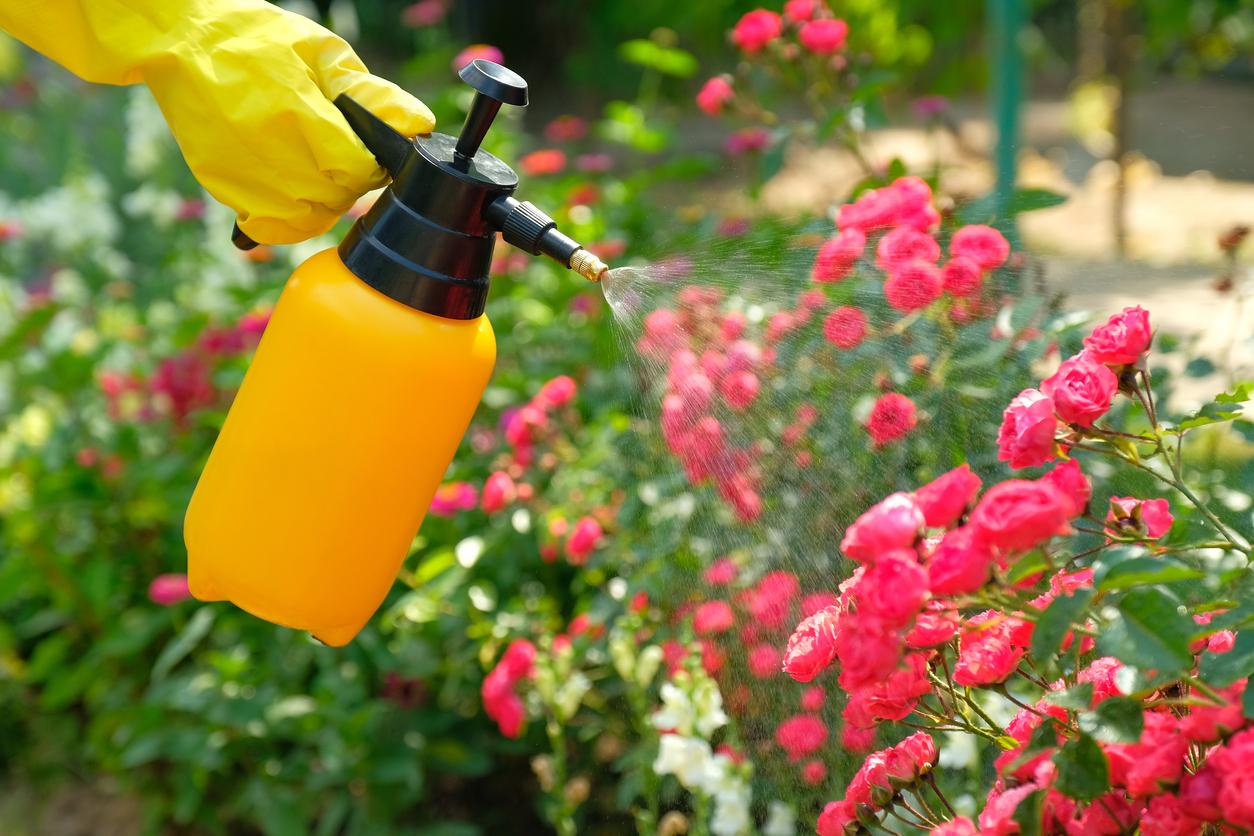Learn How to Get Rid of Cicada Killer Wasps With These 3 Easy, Effective Methods
Cicada killer wasps are very strong — they can carry as much as two to three times their body weight! This talent comes in handy when creating nests.
Published April 19 2024, 2:29 p.m. ET

Cicada killers — also known as ground diggers — are large wasps that live in burrows underground. Despite their incredible size, these insects aren’t known to be aggressive or cause any major problems, although the female of the species will sting if threatened, per Thomas Pest Services.
These wasps being dubbed "cicada killers" for their unique diets might help you in 2024 when the largest cicada emergence is scheduled to occur. However, they might mess up your garden beds when making nests. To learn how to get rid of cicada killers in three easy ways, keep reading.
Cicada killers are adverse to moist soil.

If you want to stop the problem before it begins, keeping your soil nice and moist can make a huge difference. According to Purdue University, cicada killers prefer dry soil that receives full sunlight because it's better for digging. By transforming your space into an unfavorable habitat, you're already one step ahead.
The best way to keep your soil moist is by implementing a consistent watering routine and taking good care of your yard. According to Homes and Gardens, adding compost, mulching, creating shade, or installing a drip irrigation system are all great ways to help your soil retain moisture.
For the most part, cicada killers aren’t going to cause any ruckus. If you spot a few, maybe give it time before you eliminate them. These insects can be very beneficial to your outdoor space — they’re great pollinators and help control the cicada population.
You can also try to pour boiling water in cicada killer burrows.

To get rid of nests, aka the source of the problem, you can try the boiling water method. It isn’t the nicest technique — the cicada killers will die — but it is an easy and natural way to eliminate a pest from your garden.
First, start by locating the burrow. Look for a small hole in dry, grass-free areas. One of the best ways to identify a den is by examining the nearby space and trying to spot a mound of dirt, according to Dengarden. After the hole is located, place some sort of marker on it so that you can find it again later.
Once the sun has gone down, you can begin boiling the water. It’s important to wait until night to try this method — most cicada killers will be out of the nest during the day. When the water is done boiling, put it in a container you can carry. The last thing you will need is a glass bowl. You’re ready to head out to the nest with all of these items.
When you reach the marked burrow, carefully pour the water into the hole. Grab the glass bowl and use it to block the entrance. Leave the bowl in place until the next day — eventually, the water or the sun will get rid of them.
Chemicals like ammonia or boric acid are an effective wasp deterrent.

If the cicada killers are truly wreaking havoc in your space, or you’re concerned about the safety of children or pets, it might be time to try harsher methods, such as ammonia or boric acid.
To use ammonia, you simply pour it into the hole and cover it, just like the boiling water method. It’s important to note that this chemical will eliminate the wasps but not the eggs. Boric acid will kill the wasps and the eggs, which proves to be a more thorough solution.
Be careful when trying these methods — always do research beforehand to learn about any necessary precautions and how to properly handle each chemical.